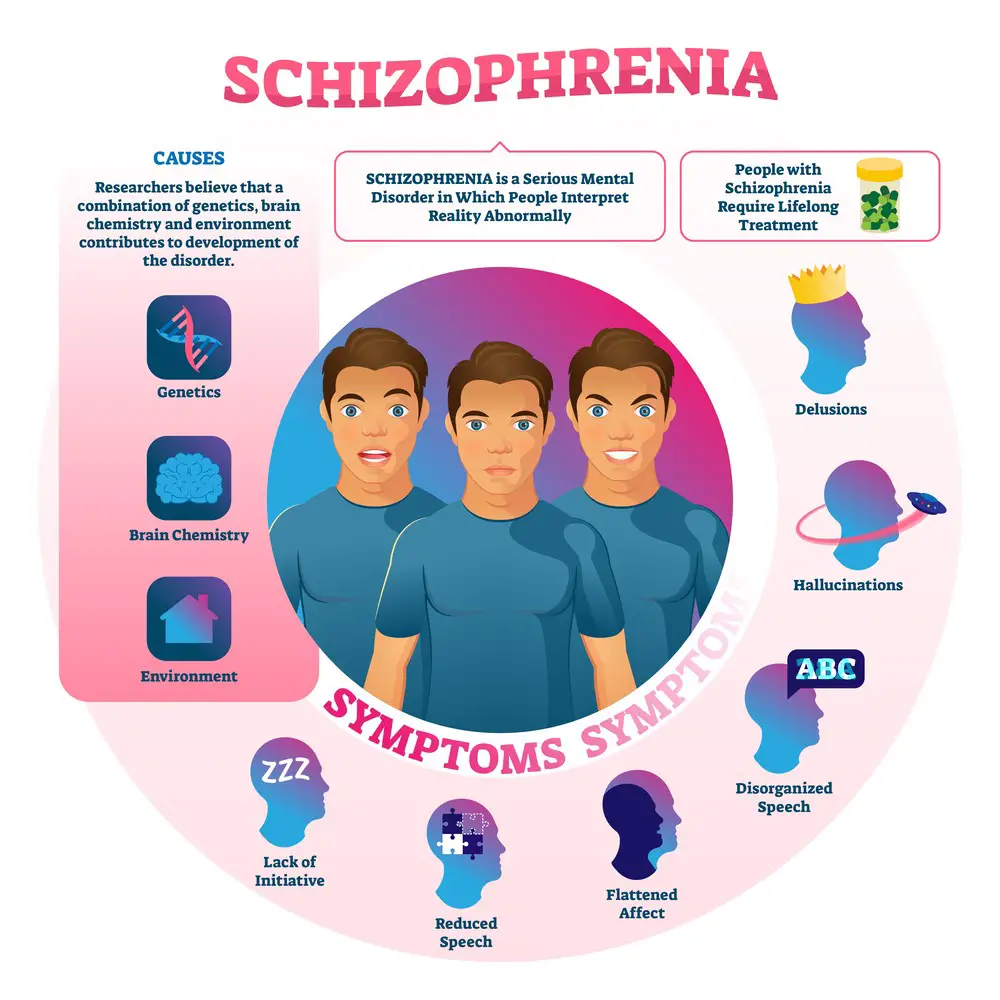As a BetterHelp affiliate, we receive compensation from BetterHelp if you purchase products or services through the links provided
We all know someone who is disorganized, or perhaps you are sometimes disorganized. While being messy and a little disorganized can be completely normal, sometimes it can point towards a deeper issue.
Perhaps you or a loved one is struggling with disorganization, and it’s starting to impact your daily life. Knowing how to handle the situation can be challenging, but there are ways to cope with and manage disorganized behavior.
What is Disorganized Behavior?
Disorganized behavior is a type of behavior that is characterized by a lack of organization or structure – hence the name. There are many signs of disorganized behavior, such as:
- A messy or cluttered environment
- Difficulty focusing on tasks
- Misplacing items often
- Struggling to keep track of time and deadlines
- Forgetting important information or appointments
- Procrastination tendencies
It’s important to note that disorganized behaviors can include verbal or written communication that is confusing or disjointed, not just physical disorganization.
Disorganized speech is often characterized by a lack of logical order and may contain irrelevant, contradictory, or incomplete information; this is an example of disorganized behavior.
When disorganized schizophrenia becomes too overwhelming and interrupts daily life, it’s essential to take steps toward understanding where it’s coming from and how to manage it.
The Link Between Schizophrenia and Disorganized Behavior
Schizophrenia is a chronic mental disorder that can profoundly impact an individual’s thoughts, emotions, and behavior.
Disorganized behavior is one of the most common symptoms of schizophrenia, and it can take many different forms. For example, someone with schizophrenia may have difficulty completing simple tasks, make frequent changes in their daily routine, or speak in a disjointed or incoherent manner.
Disorganized behavior can interfere with an individual’s ability to work, study, or maintain personal relationships. It can also lead to dangerous or self-destructive behaviors.
Although the exact cause of schizophrenia is unknown, disorganized behavior is thought to be linked to abnormalities in the brain chemicals dopamine and serotonin.

Risk Factors of Schizophrenia
There are no direct causes of schizophrenia, but factors that contribute to or put you at risk of developing the condition. These can include:
Genetic factors
If a member of your family has schizophrenia, then it is thought that you are at a greater risk of developing this mental health problem. Genetic factors are not considered a lone cause of schizophrenia but rather something that can increase the risk.
Environmental factors
Environmental factors can also increase the risk of developing schizophrenia. These factors can include: exposure to certain viruses during pregnancy, growing up in an urban environment, or suffering from childhood abuse. Additionally, drug use has been linked to an increased risk of developing schizophrenia.
Cognitive impairments
People with schizophrenia often experience cognitive impairments, affecting their ability to think clearly and make decisions. This, in turn, can lead to disorganized behavior.
Other Causes of Disorganized Behavior
Just because you are experiencing disorganized symptoms or believe your actions are pointing towards disorganization, it doesn’t always mean that schizophrenia is the sole cause.
Other potential contributors to disorganized behavior can include:
- Age-related cognitive decline
- Depression, anxiety, or other mental health disorders
- Physical illness or injury
- Stress and fatigue
- Substance abuse
- Poor time management skills
If you feel as if you are stressed about specific areas of your life, it can make you feel as if you do not have time to manage your day-to-day activities properly. This can lead to a disorganized lifestyle and behavior.
That being said, you shouldn’t ever self-diagnose yourself with a mental health issue you think you may have; always consult a qualified mental health professional to obtain an accurate diagnosis and effective treatment.

5 Tips for Coping with Disorganized Behavior
While schizophrenia and more serious mental health conditions will need professional treatment and support, there are some changes you can make to your life to help you cope with the symptoms of disorganized behavior.
Set a Routine
Routine tasks can help to keep you organized, promote a sense of structure, and reduce the risk of impulsive decision-making.
Try to establish regular times for activities such as eating, bathing, studying, working, exercising, and socializing. It can help you to feel in control and more organized.
Break Down Tasks into Smaller Steps
When faced with complex tasks, try to break them down into smaller, more manageable steps.
This can make them less daunting and help you to focus on one task at a time, which may reduce the feeling of overwhelm that can lead to disorganization.
Create a To-Do List
A daily or weekly to-do list can provide structure and help you prioritize activities. It can also remind you what needs to be done so that you don’t forget important tasks.
Reward Yourself
When you complete a task or reach a goal, reward yourself with something, you enjoy. This could be anything from listening to your favorite music or reading a book.
This can help to reinforce positive behavior and motivate you to stay organized.
Practice Mindfulness
Mindfulness can help to reduce stress and anxiety levels as well as provide you with a sense of clarity, focus, and control.
Try to build mindfulness into your daily routine by setting aside a few minutes for meditation or yoga.
Treatment of Disorganized Symptoms
If you suspect your disorganized behavior is a symptom of schizophrenia or another mental health condition, consult your doctor to discuss treatment options.
A mental health professional will diagnose you with schizophrenia by looking for a pattern of specific symptoms and by ruling out other possible causes for your disorganized behavior.
The DSM-5 (Diagnostic and Statistical Manual of Mental Disorders) outlines the criteria for diagnosing schizophrenia. You will be asked to undergo a physical examination, mental health evaluation, and laboratory tests such as blood tests to rule out any possible medical causes for your symptoms.
Treatment may include medication, psychotherapy, and lifestyle changes such as exercise, healthy eating, and relaxation techniques. Sometimes, hospitalization or other forms of inpatient care for severe symptoms may be necessary.
If you are suffering from a different mental health issue, such as bipolar disorder, you will likely undergo therapy, medication, and lifestyle changes to help manage your condition.
Final Thoughts: Dealing with Disorganized Behavior
Disorganized behavior can be a symptom of severe mental health issues such as schizophrenia, so if you think you may have this condition, it is essential to seek advice from mental health professionals.
While more severe cases of disorganized symptoms will require professional treatment, there are steps that you can take to help cope with the symptoms. Taking steps to feel more in control of your life can help to reduce the feeling of overwhelm that can lead to disorganization.
Remember that coping with disorganized behavior is an individual process, so taking the time to find what works best for you is essential. Try to be patient with yourself and remember that even small changes can make a big difference.
FAQs
- 7 Ideas to Help You Relax and Unwind on a Family Vacation - April 27, 2025
- How Having Cybersecurity Protection Helps You Relax - April 25, 2025
- 8 Reasons Why Spending Time Outside Calms You Down - April 25, 2025
This site contains affiliate links to products. We will receive a commission for purchases made through these links.



